#disabled identity
Note
Do you have any tips for making friends as an autistic adult?
Thank you so much for sending this in after I deleted the first ask, it’s really awesome of you and I really appreciate it! 😁 I looked online for articles and guides to making friendships. Here are the autistic adult-specific resources I found:
This is a guide that I found quite helpful:
https://www.autism.org.uk/advice-and-guidance/topics/family-life-and-relationships/making-friends/autistic-adults
This one has some interesting tips, though they might not all apply to you because they’re based on someone’s experiences. It’s a linear guide which I appreciated:
https://themighty.com/topic/autism-spectrum-disorder/how-to-make-friends-autism
This one is technically for teens, but I found it quite helpful, especially if social cues are hard for you:
https://kidshealth.org/en/teens/making-friends.html
This is not necessarily going to have good info in the article because I just skimmed it so I’m not sure. I included it because it has a lot of links and resources which might be helpful. Asan is listed in it and I don’t support asan because of their racist actions:
https://autismandhealth.org/?a=pt&p=detail&t=pt_aut&s=aut_meet&theme=dk&
This article has many different strategies for making social connections as an autistic person. Also if you find images helpful it has very cool illustrations, but they are completely not required to understand if that doesn’t work for you. This is my favourite of all the resources I found:
https://www.wikihow.com/Make-Friends-if-You%27re-Autistic?amp=1
I also researched beyond the category of autism to making friends as a disabled adult and found some cool stuff. Also if you’re multiply disabled this stuff might address other things you encounter:
This is an article about making friends from a disabled adult’s perspective:
https://disabilityhorizons.com/2019/04/how-to-make-new-friends-when-you-have-a-disability/
This is an article which guides you through 8 ways to make friends that are accessible to disabled adults:
https://www.endeavour.com.au/media-news/blog/8-ways-to-make-friends-when-you-have-a-disability
Here are a few places I found for virtual connection:
The Hiki app is a friendship and dating app for autistic people over the age of 17. I’ve never used it but a quick search showed me mostly positive reviews.
This is support and social groups for autistic adults for free. It appears to be current but I’m not 100% sure. TW it uses the term aspergers:
https://www.aane.org/resources/adults/support-groups/
There’s also meetup.com which I have no experience with but is recommended in a few things I read:
https://www.meetup.com/topics/autistic-adults/
My perspective
For advice I have, find environments where the social structure is comfortable for you. My example is that I like sports and can feel comfortable in athletic settings if I’m not triggered. Primarily though, don’t de-value yourself as a person people want to be around.
Autistic people often face a lot of messaging that affects self image and esteem in regards to friendships and relationships in general. Give yourself respect and grace, that stuff is really hard when it’s internalized so remember to call yourself on it. 💗
Also @through-thick-and-quinn you and I have had a lot of exchanges on here and you’re genuinely one of the kindest people I’ve ever met, I’d like to talk whenever, and consider you a friend.
#autism#autistic#actually autisitc#autism and friendship#autistic community#autistic identity#disabled identity#disabilities#disability#neurodivergent#neurodivergent community
119 notes
·
View notes
Text
On Radical Disclosure
This week, as term ended, I was at a two day workshop/conference on research ethics with regards to illness narratives. It was one of the most varied collections of people I've seen - from my fanfiction work to someone studying human remains - and yet we all had so much in common and so much to discuss.
Something that got talked about quite a bit was the issue of disclosure and positionality. For many of us in the medical humanities, our positionality in relation to the illness(es) we're studying is considered important. It's integral to my thesis. But other researchers expressed that this was hard for them, because they actively did not want to disclose their health status. It's especially awkward with some illnesses - consider those dealing with things like infertility, with STDs, with something like urinary or digestive issues.
I completely agree that no one should be forced to disclose their health status as part of their research, even though my positionality is a fundamental part of my own. There's parts of my health I don't talk about! Even still, I had an instinctual feeling of defensiveness when it was brought up, and I spent quite a lot of time thinking about why that is.
My conclusion was this: for me, disclosure is a radical act. I have two sides to my disability, the chronic pain/fatigue side and the mental/neurodivergent side. Both sides are things that I have been taught (primarily by ableism) to repress. I'm a woman, so my pain is dismissed. I've had instances in the past where people have told me to stop sharing my emotional distress, because I was being too depressing and no one wanted to hear that much of it. There is a near constant voice in my head saying that I should not take up space, be seen, express my pain.
By centering my experience, by talking about that experience, by allowing it to exist out in the world, I am - essentially - giving a giant fuck you to that voice. To the ableist world that thinks that I should vanish into nothing, and the parts of my Madness that parrot that. In a way, it's the very thing I did in response to the chronic and traumatic bullying I experienced as a child: being more loudly, more proudly the very thing that they said I was.
People should absolutely choose whether to disclose things or not, be that in research or in general. I believe this wholeheartedly. But we need, also, to recognise the rebellion inherent in disclosure for many disabled and Mad people. To acknowledge how brave it is to shout your existence into a world that tries to eradicate it. To hold space for both disclosure and non-disclosure, and everywhere inbetween.
Grateful for the workshop & participants giving me the thinking space to process this, the inspiration for the realisation, and also Alice Wong for Year of the Tiger, which I was reading alongside this and helped me process it a lot too.
#disability studies#disabled identity#disabled#medical humanities#health humanities#mad studies#research#madness#activism#disabled activism
9 notes
·
View notes
Text
as my own direct immediate list of game grievances i hate that stardew valley expects you to side against a wheelchair user who is upset that he was moved without his consent. i hate that the mass effect trilogy gives you visible scarring as a direct result of choosing mean dialogue and heals it if you're nice. i hate that the vampire the masquerade ttrpg has a monstrous player class that can appear as horrible vampiric monsters or as visibly disabled people and both of these appearances are mechanically the same. i hate that dark souls games have a difficulty level implemented in a way that cannot be adjusted for disability. i hate that i can play as a mermaid or a werewolf or a horse in the sims games but can't use a wheelchair. i hate that the ace attorney games have so much flashing and not all of the games can disable it. i hate that disability is constantly something that happens to teach a lesson, i hate that disability is something that happens as a punishment, i hate that disability is either compensated perfectly with no drawbacks or something that is endlessly sought to be cured. i hate that no character customization will ever include the mobility aids i use, that the player avatars that represent me will never look like me. i am so goddamn annoyed and so goddamn tired.
#this is about disability specifically i know there are lackluster diversity options across all marginalized identities#i am talking about this one because it is pissing me off specifically right now.#and this is not about modding. not all games are pc and not every pc game is moddable and not everyone knows how to mod.#patch me through to palaven command
38K notes
·
View notes
Text
boy it would be nice to be able to google something related to personality disorders, psychosis, intellectual disabilities, autism, DID/OSDD, etcetera without finding majority articles that are like “how to deal with a person with X” “how to cope with your child with X” “how to spot someone faking X” “can people with X be cured?”
#corvidforest vent post#i wish ppl would stop acting like it’s some awful traumatizing burden to know us#dissociative identity disorder#did system#osdd#personality disorder#intellectual disability#psychosis#vent#vent post#tw vent
15K notes
·
View notes
Text
Today, in “I’ll take any good news I can find”:
A production of Romeo and Juliet with Deaf actors signing their lines has been referred to as bilingual! Not just “accessible” or “diverse” but also BILINGUAL!
This makes me happy because the general idea of ASL (and other signed languages) is that they’re just a manual version of the spoken language. By that logic, Norwegian is just a higher-latitude version of German. Signed languages are languages of their own! With unique vocabulary, grammar, and dialects!
#linguistics#language#language and identity#language and power#language and culture#langblr#asl#american sign language#d/deaf#shakespeare#romeo and juliet#disability#accessibility#wisconsin
3K notes
·
View notes
Text
Ya know what shout out to butches who wrestle with our butchness because we don’t fit the mold in some way. Butches who aren’t physically strong or naturally caretaking because of physical disability, who need to be cared for, who can’t hold open the door for a femme. Butches with long hair, butches with big hair, butches who express their culture via their hair. Butches who’s masculinity is shaped by their culture, who’s masculinity doesn’t fit the white eurocentric mold. Fat butches, butches with curves viewed as feminine, butches who don’t have skinny, boyish builds. Butches who don’t want to be sexualized, butches on the ace spectrum. Butches who don’t have traditionally masculine interests or mannerisms or whatever. Effeminate butches. Butches who take inspo from gay men. Butches who like the occasional dress or skirt. TRANSFEM BUTCHES!!!!! And any other butches who don’t fit a certain mold!! All butches are good butches and we are all valid.
#I’ve wrestled with butch identity for a long time#Because I’m physically disabled and I am also Jewish and I love my hair and masculinity is Different in the Jewish community#I relate to how gay men do gender and am not traditionally masculine#I am fat and have a “mom bod” type of build#Etc etc#I have put so many standards on myself but why? I know who I am better than anyone. And I know I’m a butch!#It feels right and comfortable on every level#And that is what matters!!! Send post!#Kitty meows#Butch#Butchness#Butch lesbian#Butch identity#butch positivity
1K notes
·
View notes
Text

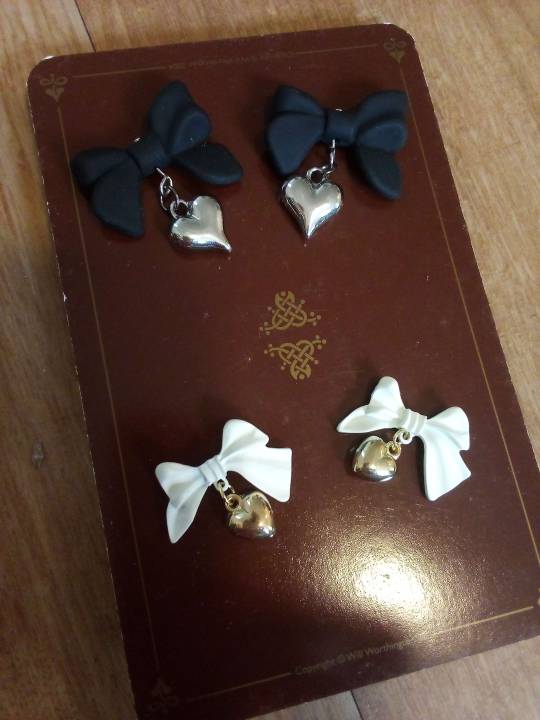


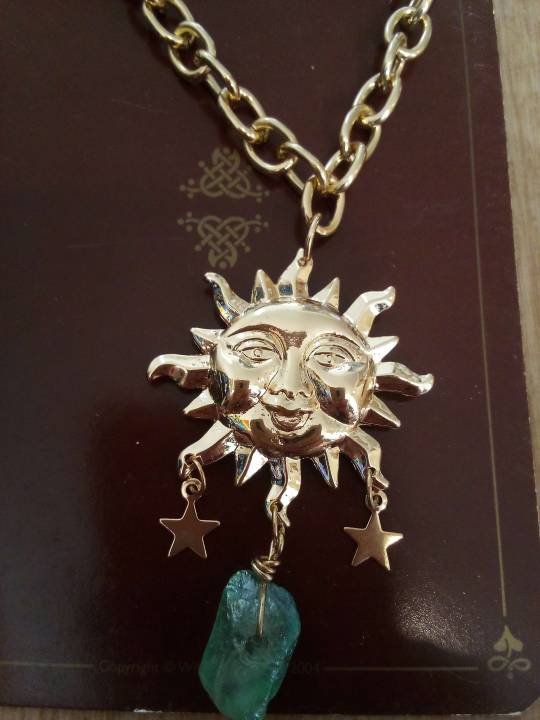




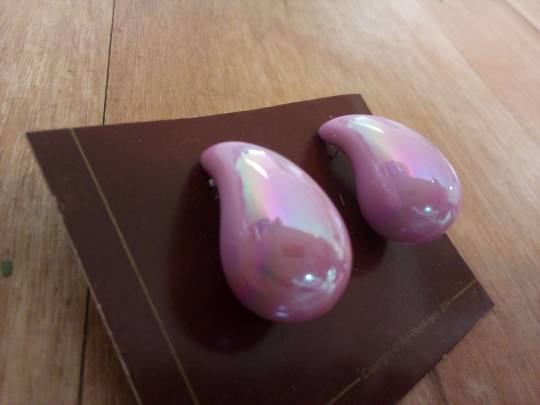
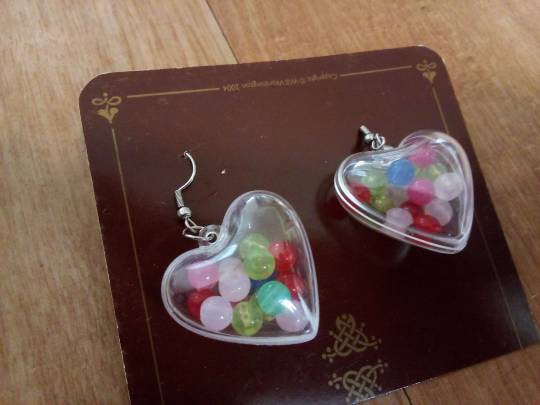

🏳️🌈 Severely disabled trans person in need of money for rent, bedding, necessities, & food after recovering from homelessness ♿
hello, i am a multiply disabled autistic trans person who was just homeless for 6 months straight. i am mstruggling with schizophrenia, PTSD, DID, hypermobile ehlers danlos syndrome, and arthritis0. i use a cane and wheelchair. i had to live in a hotel for 2 months almost exactly which ate through my f unds and sal es. i appreciate everything that has been done for me thus far, orders have resumed shipping now that people have aided with us getting a new printer
you can find these new pieces on our Ko-Fi shop, among others, even sharing this post does a lot for us. thank you, i really appreciate all of the support and kindness during this time in my life. you kept a disabled trans person housed for 6 months. we can't thank you enough!
#nonbinary#trans#lgbt#gay#lgbtq#queer#lesbian#bisexual#transmasculine#transmasc#ftm#trans man#trans men#did#dissociative identity disorder#autism#actually autistic#disabled#schizophrenic#actually schizophrenic#transgender#enby#genderfluid#genderqueer#dyke#butch#butch lesbian#bigender#lgbtqia#share your dollar
1K notes
·
View notes
Text
my heart goes out to you if you're a disabled person who has a complicated or negative relationship with sleep. if you need to sleep a lot but can't due to life circumstances, or sleeping extra causing other symptoms to flare up. if you can't sleep enough due to pain, or nightmares, or psychosis, or bipolar, or depression. if you sleep way too much and find it hard to stay awake. if you can't fall or stay asleep. if you need medication in order to be able to sleep. if you don't feel rested from sleep. if you wake up a lot in the night. if you have bladder or bowel accidents while asleep. if you twitch or convulse or move too or get injured in your sleep. if you can't control your sleep schedule no matter what. if you can't sleep during "normal" sleeping hours. if you can't sleep for 8+ hours straight but can sleep for shorter amounts of time. if sleep is what you need but for one reason or another you just can't or refuse to do it.
i care about you. your disabilities deserve to be seen and acknowledged
#actually disabled#chronic pain#cripple punk#fibromyalgia#crip punk#insomnia#troubled sleep#trouble sleeping'#sleep disturbances#sleep disorder#sleep disorders#narcolepsy#depression#bipolary#psychosis#schizophrenia#autism#adhd#ptsd#did#dissociative identity disorder#osdd#mental illness#disability#madpunk#]our writing#cpunk#disability culture#cripplepunk#c punk
1K notes
·
View notes
Text
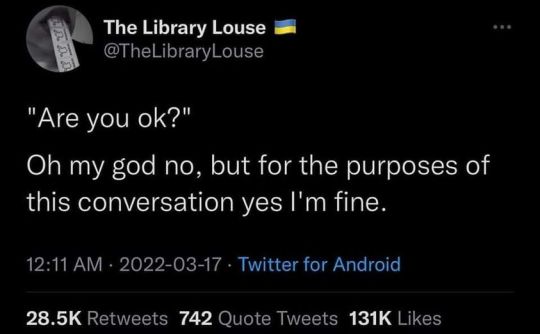
#actually bpd#actually bipolar#actually mentally ill#actually disabled#actually did#mental ill meme#did memes#dissociative identity disorder#system memes#system things#osddid
11K notes
·
View notes
Text
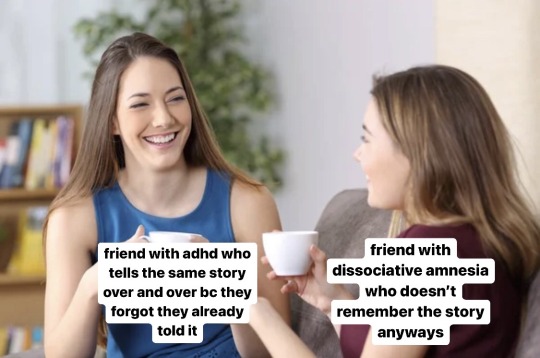
bound to fall in love
#me and my bestie#osddid#osdd#did osdd#did#did system#dissociative identity disorder#osdd system#actually plural#dissociative system#osdd memes#actually disabled#mental health#adhd#amnesia#dissociation#trauma#autism
16K notes
·
View notes
Text
Being born with red hair is just as common as having green eyes and just as common as having Dissociative Identity Disorder and just as common as being intersex.
#I'm not a red head but#green eyes#did system#intersex#Dissociative identity disorder#not that rare#chronically couchbound#disabled#cripplepunk#disability#cripple punk#disabled pride#disability pride#actually did#did osdd
882 notes
·
View notes
Text
People who try to justify queerphobia by saying that we have mental illnesses/are delusional are so stupid because not only are you being queerphobic but you’re also implying that the disabled are undesirable and it’s okay to hate on them which is blatant ableism!! I am going to rip out the entrails of anyone who says shit like that!!
#tagging some identities that usually get called delusional by idiots#lgbt#lgbtq#lgbtqia#queer#transgender#nonbinary#xenogender#neopronouns#it/its#therian#nonhuman#otherkin#voidpunk#furry#furries#disabled#disability#disabilities#disability pride#neurodivergent#neurodivergence#neurodivergencies#neurodiverse
1K notes
·
View notes
Text
Aca-Fan Identity & Lived Experience
One of the key approaches of my thesis as a whole is the relevance of my identity as a Mad researcher. Part of wider approaches within disability studies, neurodivergent studies and Mad studies as a whole, it's the "nothing about us without us" idea that research into the experience of Madness should be led by those who know what it's like to experience it. This is especially relevant since I am studying the very affective side of things - what it feels like to experience this.
Today whilst doing my ethics writeup for my supervision, I was going through my notes and found a quote from Matt Hills about autoethnography's capacity to examine the algorithmic experience of fans - and/or the meta level experience, going beyond just the reading and writing of the artifact (which is what gets focused on a lot because we do love having an artifact to research).
Which just made me jump in delight because it makes the structure of my thesis so perfect. I've taken inspiration from Ria Cheyne and Ebony Elizabeth Thomas in the structure of my thesis - which I can ramble about in more detail at some point, but the key thing for right now is that each of my chapters has both a media type and an aspect of Madness that it focuses on. My video games chapter was on delusion, disorientation and dissociation - my fanfiction chapter, meanwhile, is on mood and emotion.
So how perfect is it that not only am I researching mood and emotion, I'm doing it in a field that really sets you up for positioning your own emotional experience as a researcher, in a wider field (med & health hums) where researcher identity is also powerful and relevant. I'm in awe of both my own brain and the world sometimes, that I can instinctually know things are connected and then dive into it deeper and find all the ways how. That'd be the power of feeling, topically.
It's timely because I'm in a period of autistic and disabled burnout right now, and that's meant that I'm really struggling to both experience and regulate emotion. I also had the realisation that often what *I* do as a fan is dump really heavy, emotional things into a fanfic and then never feel anything about them again. Every time I go back to read my own works I am astonished by how much feeling they inspire both in me and the people kind enough to comment. So the idea that my feelings, no matter how complex and sometimes hard to access they are, could be this important - it's really lovely.
Anyway. I love my research. A lot. This has been a nice feeling to round up the bulk of my work for the day.
#fan studies#fandom research#fandom studies#mad studies#research#fanfic#fandom#fanfic studies#ao3#fanfiction#disabled identity#disability studies#phdresearch
7 notes
·
View notes
Text
One day a lot of you will have to contend with your effect on people all because you prioritized your feel-good emotions of "validation" over material reality and over other people.
The fact that we have I/DD individuals who are begging you not to use "high support needs" about yourself when referring to having anxiety because you feel like calling yourself that validates your experiences is, frankly, insane.
The fact that wheelchair users are telling you that not having access to physical buildings is not the same as sensory issues once inside the building and you're calling them ableist because you assume that means they're putting you down for being neurodivergent or saying you have 0 problems is frankly, insane.
The fact that physically disabled people are having to tell you that no being physically disabled is not the same as being mentally ill and does not have the same material experiences (yes even though "the brain is a physical body part") and the response is to harass them because You feel like people take "physically disabled" more seriously or Think that people would respect you more is, frankly, insane.
The fact that in trauma and trauma disorder spaces we have people competing over their trauma histories and trying to reframe words as actually being exactly the same as manipulation or parental abuse because you don't think you had it bad enough and so you seek out "worse" things to call it and therefore flood the tags and flood communities with completely irrelevant bullshit is, frankly, insane.
You need to be able to deal with the fact that some people are not going to have the same experiences as you. Some of these experiences could and can even be described as "objectively worse," while other experiences are simply that: different from your own. You need to grapple with this without taking it as a personal affront and without assuming it means people are claiming you aren't struggling. Without taking it as commentary on your personal experiences at all, actually. You need to be able to exist without having to be acknowledged by random strangers around you and have your exact experiences mentioned before you care about another living person. And overall you all need to get far more comfortable with discomfort.
#cripple punk#cripplepunk#disability pride month#disability#Should I be evil....sure why not#dissociative identity disorder#.log
1K notes
·
View notes
Text
hollywood could never top the casual but meaningful representation that horror fiction podcasts have
#EVERYONE IS GAY#AND ITS CANON TOO#they take the time to address the issues and the internal dialogue#of queer experience#but at the same time#it just is#it's casual#it understands how to present queer people as People#with problems that are both unique and non unique to their identity#and!!!!#there's so much intersectionality#muslim queer people#disabled queer people#you name it they have it#it just means so much to me#the magnus archives#the silt verses
1K notes
·
View notes
Text
unpopular opinion - the tiktok system community has changed people’s perceptions of DID so much and it’s kind of irritating for those of us who don’t fit the stereotype it’s created.
- a system who dosent exactly fit the tiktok stereotype and is fakeclaimed because of it.
#disabled#DID#dissociative system#actually dissociative#dissociative identity disorder#did system#system#traumagenic system#tiktok system community#polyfrag system#polyfragmented#polyfragmented system#highly complex did#hc did#hc did system#theo.chr#the other letters in queue are silent
717 notes
·
View notes